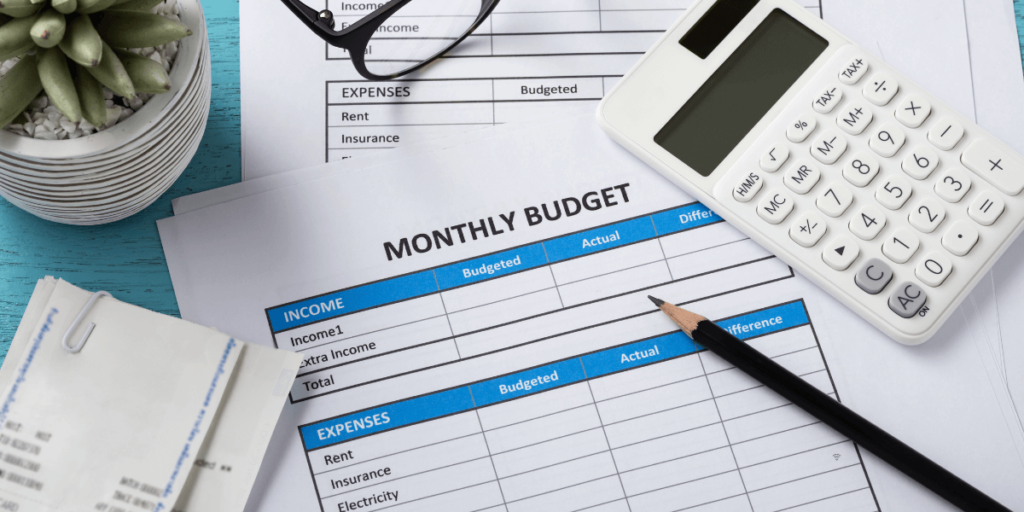Introduction to Budget Mastery
Budgeting is often viewed as a mundane task, but in reality, it is crucial for financial health and personal empowerment. Mastering the art of budgeting transforms your relationship with money, providing you with the skills to make informed financial decisions and pursue your long-term goals. Whether you are saving for a house, paying off debt, or planning a dream vacation, effective budgeting becomes your road map to financial success.
Learning to control your finances can be a daunting process, but it is arguably one of the most rewarding skills you can acquire. When you master budgeting, you gain a clear understanding of where your money is coming from and where it’s going. You can identify financial leaks—those small, often unnecessary expenses that add up surprisingly quickly—and reallocate resources to meet more important objectives.
In essence, budgeting is not about restricting your enjoyment of life. Rather, it is about making intentional choices that align with your priorities. A well-crafted budget empowers you to spend money with confidence, knowing that you are still on track to meet your larger financial goals. This sense of control can alleviate a great deal of financial stress and anxiety.
We’ll explore the steps and tools necessary for budget mastery. From laying the groundwork with a thorough financial snapshot to leveraging technology for effortless tracking, this guide aims to equip you with practical tips and strategies for becoming a budgeting pro.
Why Mastering Budgeting is Crucial
Mastering budgeting is crucial for several reasons, not least of which is financial security. When you have a solid grasp of your finances, you are less likely to encounter unexpected shortfalls. Whether it’s an emergency fund that can cover sudden expenses or a retirement account that grows steadily over time, budgeting ensures that you are prepared for life’s uncertainties.
Secondly, budgeting is indispensable for goal setting and achievement. Without a clear financial plan, your goals remain abstract and unattainable. For example, you might dream of buying a home but have no idea how much you need to save every month to make that dream a reality. By mastering budgeting, you can set realistic, achievable goals and create a step-by-step plan to reach them.
Moreover, effective budgeting can help alleviate financial stress. Financial worries are one of the most common sources of anxiety and can have a profound impact on mental health. Knowing that you have a plan and are in control of your finances can provide immense peace of mind. It allows you to make financial decisions from a place of confidence rather than desperation.
Ultimately, mastering budgeting is about creating a sustainable financial life. It enables you to live within your means, avoid unnecessary debt, and build wealth over time. Far from being restrictive, a well-managed budget gives you the financial freedom to enjoy life while working toward your long-term goals.
Starting with a Financial Snapshot
The first step in mastering your budget is taking a thorough financial snapshot. This involves a comprehensive evaluation of your current financial situation. Think of it as a financial health check-up.
To create a financial snapshot, you will need to gather all relevant financial documents. These include bank statements, credit card bills, loan statements, and any other records of income or expenses. Organizing this information might take some time, but it is a critical step in understanding your financial position.
A financial snapshot typically includes:
- Total Income: All sources of income, including salary, freelance work, rental income, and investment earnings.
- Total Expenses: All monthly expenses, both fixed (mortgage, utilities, car payments) and variable (groceries, entertainment).
- Debts: Total amount owed on credit cards, student loans, mortgages, etc.
- Assets: Total value of savings accounts, investment portfolios, real estate, etc.
Once you have a clear picture of your current financial state, you can start making informed decisions about where adjustments are needed. This initial assessment is crucial for setting realistic financial goals and creating a viable budget plan.
Setting Achievable Financial Objectives
With a clear financial snapshot in hand, the next step is to set achievable financial objectives. These goals should be Specific, Measurable, Achievable, Relevant, and Time-bound (SMART).
Specific: Your financial goals should be clear and unambiguous. For example, instead of saying “I want to save money,” specify “I want to save $5,000 for a vacation.”
Measurable: You should be able to track your progress toward achieving your goal. This could involve setting monthly savings targets or reducing certain types of expenditures.
Achievable: Your goals should be realistic, given your current financial situation. Setting unattainable goals can be discouraging and counterproductive.
Relevant: Your financial goals should align with your overall life objectives. If a goal doesn’t contribute to your broader plans or values, it is less likely to be motivational.
Time-bound: Every goal should have a deadline. This creates a sense of urgency and helps you stay focused.
By setting SMART objectives, you create a roadmap for your financial journey. For example, if your goal is to save for a down payment on a home within five years, you can calculate how much you need to save each month to reach that target. Tracking your progress can motivate you to stay on course, adjust your budget as needed, and celebrate your achievements along the way.
Detailed Breakdown of Income vs. Expenses
Once you have set your financial objectives, the next step is to break down your income and expenses in detail. This entails not only listing all sources of income and categories of expenditures but also analyzing them to identify areas for improvement.
Begin by categorizing your expenses into fixed and variable costs:
Fixed Expenses:
- Rent or mortgage payments
- Utilities
- Insurance premiums
- Loan repayments
Variable Expenses:
- Groceries
- Dining out
- Entertainment
- Clothing
Creating a detailed breakdown will help you see exactly where your money is going each month. This can be eye-opening and often reveals opportunities for reducing unnecessary spending. For instance, you might discover that you are spending more on dining out than you realized and decide to cook at home more often.
Here’s a simple table to illustrate how you might categorize and track your monthly expenses:
| Category | Monthly Amount |
|---|---|
| Rent/Mortgage | $1,200 |
| Utilities | $150 |
| Groceries | $300 |
| Dining Out | $200 |
| Entertainment | $100 |
| Insurance | $100 |
| Transportation | $150 |
| Savings | $500 |
| Total | $2,700 |
Analyzing this table on a monthly basis will provide valuable insights, helping you to allocate your resources more effectively and avoid financial pitfalls.
Implementing a Budget Framework
With a detailed income and expense breakdown in hand, you can now implement a budget framework that aligns with your financial objectives. Several budgeting methods can guide your plan, such as the 50/30/20 rule, zero-based budgeting, or envelope budgeting.
- 50/30/20 Budgeting: Allocate 50% of your income to necessities, 30% to discretionary spending, and 20% to savings and debt repayment.
- Zero-Based Budgeting: Every dollar of your income is assigned a purpose, ensuring that your income minus expenses equals zero by the end of the month.
- Envelope Budgeting: Allocate cash amounts to different spending categories using envelopes. Once the cash is gone, no more spending in that category is allowed for the month.
Implementing a framework involves more than just setting it up; it requires commitment and regular review. Consider using a spreadsheet or a budgeting app to track your progress in real-time. Adjust the framework as necessary to better meet your changing financial needs and goals.
Using Technology to Simplify Budgeting
In today’s digital age, numerous tools can simplify the process of budgeting. These personal finance tools come with various features that can track expenses, alert you to unusual activity, and provide comprehensive financial reports.
Budgeting Apps: There are several popular apps like Mint, YNAB (You Need A Budget), and PocketGuard that automatically track your income and expenses, categorize your spending, and alert you when you’re close to overspending.
Spreadsheets: For those who prefer a more hands-on approach, customized spreadsheets using Excel or Google Sheets can offer a flexible way to manage finances. Templates for budgeting are readily available and can be personalized to meet your specific needs.
Online Banking Tools: Most banks offer online tools that integrate with your accounts to provide real-time budget tracking, spending analyses, and alerts.
Utilizing these tools not only makes budgeting more manageable but also increases your financial awareness. With the ability to access your data anytime and anywhere, you can make prompt adjustments to stay on track toward your financial goals.
Strategies for Financial Discipline
Budgeting requires financial discipline. Without it, even the best-laid plans can fall apart. Below are some strategies to help maintain that discipline:
Automate Savings: Setting up automatic transfers to your savings account can ensure that saving remains a priority. This “out of sight, out of mind” approach can be highly effective.
Avoid Impulse Purchases: Create a 24-hour rule where you wait a day before making any unplanned purchases. This cooling-off period often helps you realize whether you actually need the item.
Track Every Penny: Knowing where every dollar goes can increase your awareness and help curb unnecessary expenses. Budgeting apps can be particularly useful for this purpose.
Prioritize High-Interest Debt: Focus on paying off high-interest debt first, as it can quickly spiral out of control. Establish a repayment plan and stick to it rigorously.
Normally, disciplined budgeting requires a behavioral change. By adopting these strategies, you can build a robust financial habit that safeguards your long-term financial health.
Dealing with Budget Setbacks
No matter how carefully you plan, setbacks are bound to happen. The key is to understand how to deal with them without losing momentum. It’s essential to recognize that setbacks are a natural part of the budgeting process and can offer valuable lessons.
Reevaluate Your Budget: When setbacks occur, it’s crucial to revisit and adjust your budget. This might involve reallocating funds or cutting back in certain areas to make up for unexpected expenses.
Emergency Fund: Maintain an emergency fund that can cover at least three to six months’ worth of expenses. This fund acts as a financial cushion during periods of unexpected hardship.
Stay Positive: Financial setbacks can be disheartening but maintaining a positive outlook is crucial for long-term success. View setbacks as learning experiences and opportunities for growth.
Seek Professional Advice: If you find yourself continuously struggling, consider seeking advice from a financial advisor. Professionals can offer tailored strategies to help you overcome obstacles and stay on track.
Understanding how to handle setbacks ensures that temporary difficulties don’t derail your long-term financial plans. It allows you to bounce back stronger and more resilient.
Continuous Improvement of Your Budget
Budgeting is not a one-time task but an ongoing process that requires periodic review and adjustment. Continuous improvement ensures that your budget remains relevant and effective as your financial situation evolves.
Monthly Reviews: Conduct a monthly review of your budget to track your progress, identify areas for improvement, and make necessary adjustments.
Adjust for Life Changes: Whether it’s a new job, marriage, or growing family, life changes will affect your financial situation. Make sure to adjust your budget accordingly.
Evaluate Goals: Periodically reassess your financial goals to ensure they are still relevant and achievable. Adjust your plan if your priorities or circumstances change.
Keep Learning: The financial world is constantly changing, and staying informed can help you make better budgeting decisions. Subscribe to financial blogs, read books, or take courses to stay updated.
Regularly fine-tuning your budget can make a significant impact on your financial success. It’s a dynamic tool that should evolve with your life circumstances and financial goals.
Resources and Tools for Advanced Budgeting
For those looking to take their budgeting skills to the next level, several resources and tools can offer advanced insights and techniques.
Personal Finance Software: Tools like Quicken and Personal Capital provide comprehensive financial tracking, investment advice, and budgeting solutions. They offer more advanced features compared to basic budgeting apps.
Financial Advisors: A certified financial planner can offer tailored advice, helping you create a robust financial plan, optimize investments, and achieve your financial goals.
Educational Resources: Websites, books, and online courses on personal finance can provide valuable insights and advanced strategies. Sites like Investopedia, Khan Academy, and Coursera offer excellent resources for learning more about budgeting and financial management.
Community Support: Joining financial forums or budgeting communities can provide additional support, tips, and accountability. Engaging with others who are on a similar financial journey can be incredibly motivating.
Utilizing these resources can enhance your budgeting skills and provide comprehensive tools to manage and grow your financial wealth.
Conclusion
Mastering the art of budgeting is a transformative process that can lead to financial security, goal achievement, and reduced stress. By taking a detailed financial snapshot, setting SMART goals, and breaking down income versus expenses, you lay the foundation for a robust budget framework. Incorporating technology, maintaining financial discipline, and learning to deal with setbacks are crucial steps toward budget mastery.
Continuous improvement is essential. Regularly reviewing and adjusting your budget ensures it remains relevant to your changing financial circumstances. Utilizing advanced tools and resources can further refine your budgeting skills, making you adept at managing your finances with confidence and precision.
Budgeting is a lifelong skill that offers immense rewards. With the right strategies and tools, you can achieve financial freedom and live a fulfilling life aligned with your financial goals.
Recap
- Mastering budgeting is essential for financial security, goal setting, and stress reduction.
- Start with a comprehensive financial snapshot to understand your current situation.
- Set SMART financial goals to create a clear roadmap.
- Break down income vs. expenses to identify opportunities for improvement.
- Implement a suitable budget framework and utilize technology to simplify the process.
- Maintain financial discipline and know how to deal with setbacks.
- Continuously review and improve your budget to keep it effective.
- Utilize advanced tools and seek professional advice for optimal financial management.
FAQ
1. What is the first step in creating a budget?
The first step is taking a thorough financial snapshot to understand your current income, expenses, assets, and liabilities.
2. How often should I review my budget?
It’s recommended to review your budget monthly to track progress and make necessary adjustments.
3. What should I do if I encounter a financial setback?
Revisit and adjust your budget, consider using an emergency fund, and remain positive. Seeking professional advice can also be helpful.
4. Are there any tools to simplify budgeting?
Yes, several budgeting apps like Mint and YNAB, as well as spreadsheets and online banking tools, can simplify the process.
5. How can I stay disciplined with my budget?
Automate savings, avoid impulse purchases, track every expense, and prioritize paying off high-interest debt first.
6. What are some advanced tools for budgeting?
Advanced tools include personal finance software like Quicken and Personal Capital, as well as professional advice from certified financial planners.
7. How can continuous improvement benefit my budget?
Regular reviews and adjustments ensure your budget remains relevant and effective in achieving your financial goals.
8. Why is it important to set SMART financial goals?
SMART goals are specific, measurable, achievable, relevant, and time-bound, providing a clear and actionable roadmap for your financial objectives.
References
- Dave Ramsey’s “The Total Money Makeover”
- Elizabeth Warren’s “All Your Worth: The Ultimate Lifetime Money Plan”
- https://www.investopedia.com/articles/personal-finance/011216/6-best-budgeting-approaches-different-personality



